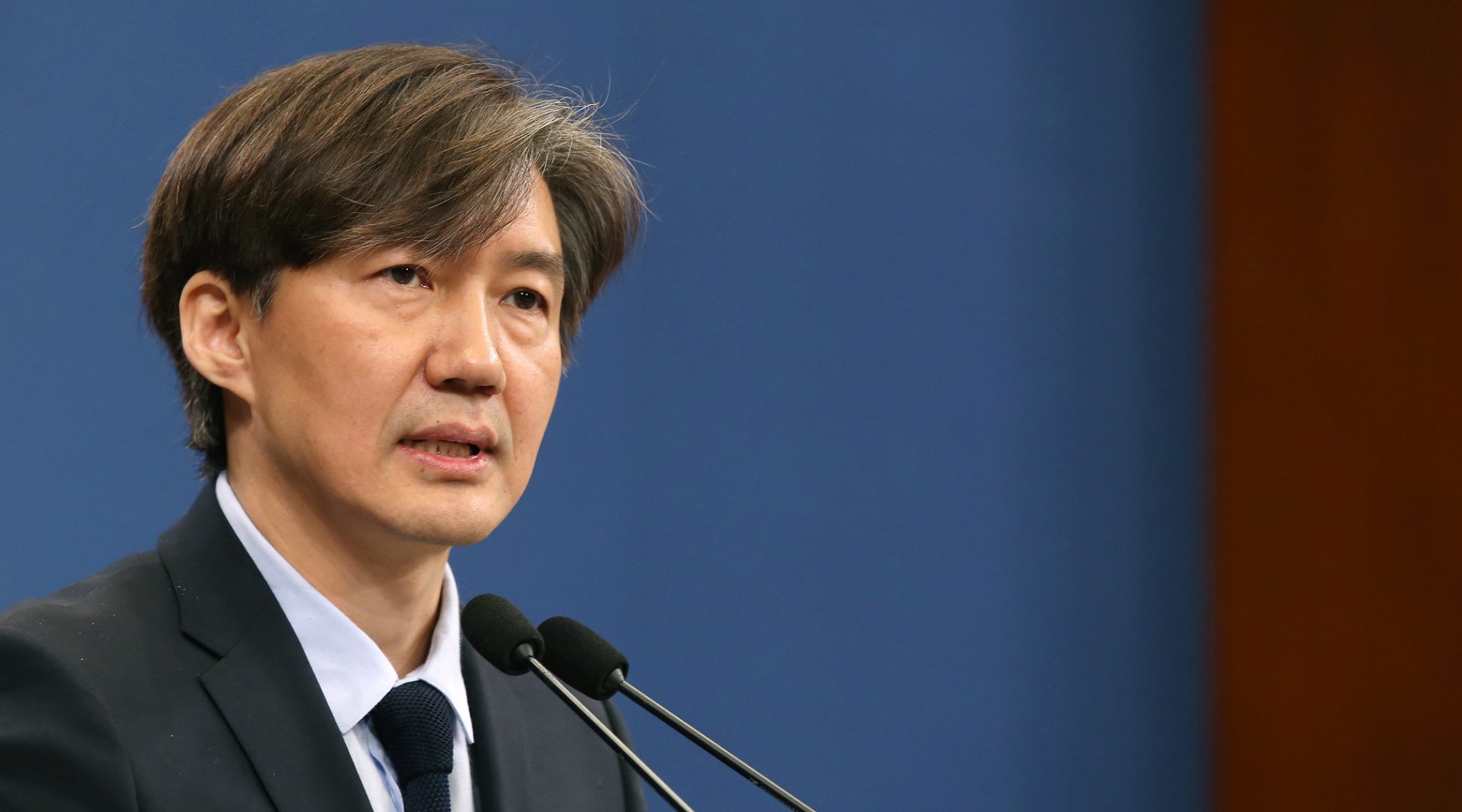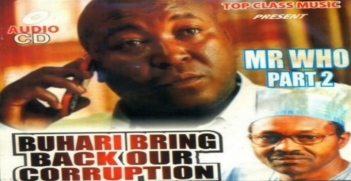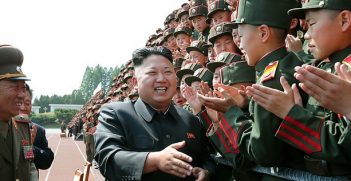Scandals Reveal South Korea’s Broken Politics

The scandal surrounding South Korea’s short-lived justice minister, Cho Guk, has brought to light the deeper sentiments of ordinary Koreans that only the rich and powerful can succeed. It also raises deeper questions regarding the efficacy of Korean politics and whether the entire political system may be broken.
After weeks of mass demonstrations in Seoul, the once touted darling of liberal Korean politics, Cho Guk, was forced to step down from his short-lived role as justice minister. Cho Guk, an ally of current president Moon Jae-In, came under fire after it was revealed he abused his influence to gain his family social and economic privileges; this caused an extraordinary uproar in South Korean society. Only a year after the mass protests which led to the arrest of former president Park Geun-Hye, the Korean political system has, once again, become a place of intense public discontent.
Despite coming into power on an agenda of social equity and political reform, Moon’s presidency seems to be perpetuating the same problems which it sought to root out: corruption, elitism and social inequality. The scandal surrounding Cho Guk has brought to light the deeper sentiments of ordinary Koreans that only the rich and powerful can succeed. But it also raises deeper questions regarding the efficacy of Korean politics and whether the entire political system may be broken.
In order to understand the level of public rage directed at Cho Guk, it is essential to recognise his reputation as a defender of social equality in Korea’s deeply stratified society. Cho is a professor of law at the prestigious Seoul National University and is well known for his advocacy for progressive causes. Under the repressive anti-communist regime of the late 80s, Cho was detained under the National Security Act for his membership of the illegal socialist society Sangwawon and for his outspoken criticisms against the government. In his book For the Freedom of Conscience and Ideology, Cho spoke of the “terrible Korean society” where “the household someone is born in determines their life-path.” In a society with the highest income inequality in Asia, Cho’s arguments subsequently earned his place as a rising superstar of the left.
In 2018, Cho was handpicked by President Moon to head up a powerful new prosecutors’ committee, one which sought to limit influence-peddling and political wrangling in legal investigations. Yet upon his confirmation as the new justice minister, a litany of allegations – ones which seemingly are associated with causes Cho has aligned himself against – came to light. These included Cho sending his daughter to an ultra-elite private institution for her education and his abuse of influence to secure her name as a paper’s lead author in the coveted Korea Journal of Pathology; all of this helped secure his daughter’s place in one of Korea’s most prestigious universities. His family, including his wife, have also been tied to shady investment deals in private equity funds worth 1.35 billion won (US $1.1 million), leading to the formal arrest of his wife and the barring of relatives from leaving the country.
The ultra-competitive nature of Korean society has led many youths to feel hopeless regarding their futures. Korea’s heavy emphasis on education means that university entrance exams and getting accepted into a reputable university is perceived by students as literally life-defining. According to government data, only 2 percent of all university examinees are accepted into Korea’s top three universities, yet 50 percent of those studying at these institutions also come from the top 20 percent of the national household income. Consequently, Cho Guk’s use of influence to secure exclusive educational advantages for his daughter has sparked palpable rage amongst Korea’s youth. Writing in the Korea Times, Lee Suh Yoon wrote that “the scandal lays bare how meticulously the elite pass down their socio-economic status to their children.”
Yet this isn’t the first scandal to rock the Moon administration, one which pledged to create “a world without privileges and foul play.” Since the beginning of the year, four key allies of President Moon have offered their resignation. This includes Moon’s presidential spokesperson Kim Eui-kyeom, who offered to resign after shocking allegations of influence-peddling and real estate speculation. These scandals have called into question the political left’s image as corruption fighters. The public is again beginning to deride what is now known as the “Gangnam left.” The term is a description of liberal politicians who advocate for social equality yet are plagued by allegations of misconduct and foul play themselves. “Gangnam” refers to the wealthiest and most exclusive district of Seoul where a majority of the social elite live. It essentially calls out politicians engaging in a uniquely Korean form of political double think; behaving like the common folk in the spotlight but living the extravagant “Gangnam” life of the well-off behind closed doors.
Along with stalled economic growth and faltering relations with the North, Moon’s approval ratings have consequently plummeted from 70 percent at his inauguration to just below 40 percent in October. However, growing discontent is not necessarily directed at the left alone, but at the wider political establishment which seems to be continuously plagued by corruption and misconduct. According to a public survey taken by Hanguk research, 88 percent of young people see the law as being carried out unfairly, while 64 percent of respondents believe their political representatives are engaging in some form of misconduct without legal scrutiny. As Cho himself stated: despite his actions being unethical, all of it happened within the legal boundaries. Nevertheless, out of Korea’s past seven presidents, three have been arrested for corruption and three have committed suicide in relation to allegations of misconduct.
Deep public frustrations against the political establishment and the economic elite have led people to take to the streets in an unprecedented fashion. One recent demonstration against Moon and Cho Guk was estimated to have a turnout of 3 million. “The parliament no longer fulfils its role” in representing society, states Professor Lee Jin-Woo of Pohang University. Many Koreans feel betrayed by the hypocrisy of Moon’s once extremely popular progressive government As one commentator argued in the popular newspaper Joogang Ilbo, his claims of fairness “was all an illusion, and the absurdity makes it even more disgusting.”
Yet the Cho Guk case is not necessarily a problem of the individual but a scathing indictment of an entire political system that continues to let these problems reoccur. The scandal has opened a Pandora’s Box into the inequities of Korean society and the ineptitude of the government to make a change, yet this time it seems Koreans are unwilling to let it pass. South Korea’s social and political fabric is once again under intense pressure and if the authorities do not act now, the political system “risks losing its place in society forever.”
Christopher Khatouki is a former Councillor at the Australian Institute of International Affairs, NSW. He is currently a guest teacher for the Gyeongsangnam-do Office of Education in South Korea.
This article is published under a Creative Commons Licence and may be republished with attribution.





